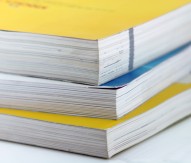
App to manage bipolar disorder developed
The EU has funded a project aiming to improve the lives of people with mental illnesses. UBICOM MENTAL HEALTH is developing a smartphone app which could help manage the effects of bipolar disorder.
The app, named MoodRhythm, is based on the idea that the body’s natural rhythms, which are known as circadian rhythms, have a significant influence on human wellbeing. This is particularly true in patients with bipolar disorder, a mental condition characterised by extreme mood swings.
Supported by a Marie Curie International Outgoing Fellowship grant, Dr Mark Matthews has been developing the app at Cornell University, USA, in collaboration with Dr Ellen Frank and Professor Geri Gay, leading authorities in this field.
MoodRhythm, which can be used as part of treatment or on its own, uses a diary to help users keep track of their moods and energy levels. Matthews’ main focus, in collaboration with Dr Tanzeem Choudhury, is the app’s use of smartphone sensors to track daily routines and therefore reduce the need for patients to record behaviour patterns themselves. “This is very important because people with bipolar disorder are more susceptible to stress events in their lives or changes in their routine,” explained Matthews. “These can lead directly to changes in people’s biological rhythms, which in turn can lead to a depressive or a manic episode.”
Matthews added: “Another aspect we are looking at is the amount of activity using a gyroscope and accelerometer on the phone as well as network or GPS information.” Previous studies have shown that patients’ level of physical activity vary in accordance with their wellbeing. For example, if they are becoming manic, more movement and changes of location are expected.
Matthews is also excited by the potential to monitor virtual as well as real-world activity. “The manic phases of bipolar disorder are associated with what is called the ‘flight of ideas’,” he says. “We want to see if we can detect that through low level interactions with the smartphone, such as how often the user is unlocking it or switching between applications.”
MoodRhythm uses an open IT architecture so the code is available for other programmers to use and the app itself can be incorporated directly into other health-related initiatives. The app also won the USA’s Heritage Open mHealth Challenge in 2013, an award to encourage the development of shared platforms for mobile health initiatives.
Matthews said he hopes that MoodRhythm can benefit the treatment of other illnesses where circadian rhythms have a notable bearing, such as schizophrenia and even cancer.




